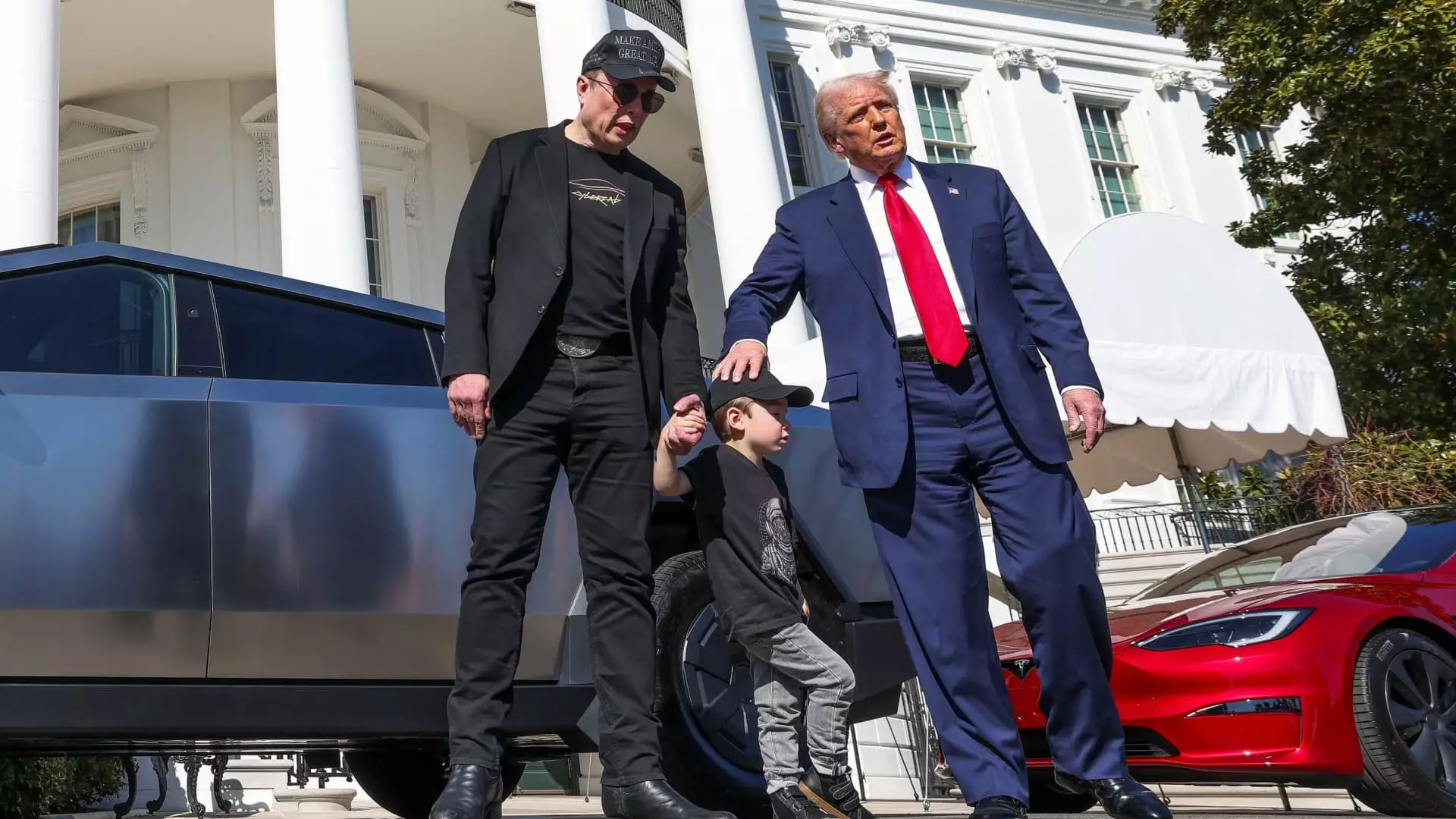Elon Musk’s recent remarks regarding U.S. tariffs reveal a layered dynamic between one of the world’s most influential entrepreneurs and the realm of governmental economic policy. Although he is cherished by many as a pioneering innovator, Musk’s nuanced criticism of tariffs—as he works through economic uncertainty within the automotive sector—demands deeper scrutiny. He characterizes tariffs as both an ally and a foe; while he dislikes the unpredictability they generate, he acknowledges their potential necessity when other nations engage in “predatory” trade practices. This dual perspective places Musk not firmly in favor of or against tariffs, but rather in a precarious balancing act, navigating a broader landscape of international economic interactions.
The Tesla Perspective: Embracing Localized Supply Chains
A hallmark of Musk’s strategic foresight is Tesla’s emphasis on localized supply chains, which he asserts make the company less vulnerable to the uncertain tide of tariffs compared to traditional U.S. automakers. However, one must question: does this position truly reflect a stronger foundation, or is it merely a façade masking potential vulnerabilities? The fact is, while Tesla may dodge the bullets of impeding tariffs on imported vehicles, it still deeply entwines with global supply chains for essential components. Musk’s confident declaration that his company is the “least affected” opens the door for skepticism; dependencies on external markets, such as battery components from China, reveal a complexity that few are willing to dissect.
Numbers Don’t Lie: The Economic Realities
Despite Musk’s bravado in discussing localized supply chains, Tesla’s recent financial disclosures paint a more grim picture. A staggering 20% drop in automotive revenue year-over-year and an astronomical 71% plunge in net income cannot be ignored, even in the throes of political maneuvering. For a company that seeks to revolutionize transportation and sustainable energy, these figures signal the stark realities of market fluctuations influenced by evolving economic policies. The turmoil surrounding tariffs and their implications underscores that even the most innovative enterprises are not immune to the tempest of external factors—Musk’s assertiveness is rightfully challenged by these hard statistics.
Interplay with Political Influence
As a noted advisor to Donald Trump, Musk’s relationship to the presidency adds further complexity to the discourse on tariffs. His candid remarks criticizing Peter Navarro, the administration’s chief trade adviser, illuminate the often contradictory positions held by those in powerful circles. Although Musk claims to offer constructive criticism to the President, it raises broader questions about the efficacy of this influence in a realm where short-term gains frequently overshadow long-term benefits. For someone advocating for a shift towards predictable tariff structures and free trade, the tension between political alliances and business acumen could perhaps dilute his potential impact.
Challenges Ahead: The Fallacy of Autonomy
Musk’s confident assertion about initiating local manufacturing of lithium iron phosphate battery cells serves as a testament to Tesla’s ambition. However, it also exposes a troubling fallacy—that autonomy from external supplies can manifest simply through a shift in production locations. The announcement of plans to bolster local capabilities cannot replace the reality that material shortages and reliance on non-domestic suppliers are ongoing challenges. While Musk’s vision pushes for innovative solutions, they must grapple with the limitations posed by the reality of global supply chains intertwined with geopolitical tensions.
The Ethical Balance: Tariffs and Corporate Responsibility
In advocating for lower tariffs, Musk must also contend with the ethical implications of corporate behavior within the global market. The narrative around tariffs often becomes a battleground for discussions on fair trade, environmental sustainability, and economic equity. As Tesla aims to lead in sustainability, one must ponder whether aggressive tariff policies, regardless of their immediate impact on profit margins, could paradoxically hinder the progress Musk envisions for renewable energy and electric vehicles. His emphasis on fair economic practices should coexist with his business objectives—both must be in sync if we hope to create a viable path forward.
In navigating these turbulent waters of economic policy, Musk’s complex position serves as both a cautionary tale and an emblem of ambition. There exists a precarious balance between innovation and the socio-economic threads that weave through international trade; it is here that the true challenge lies.


Leave a Reply